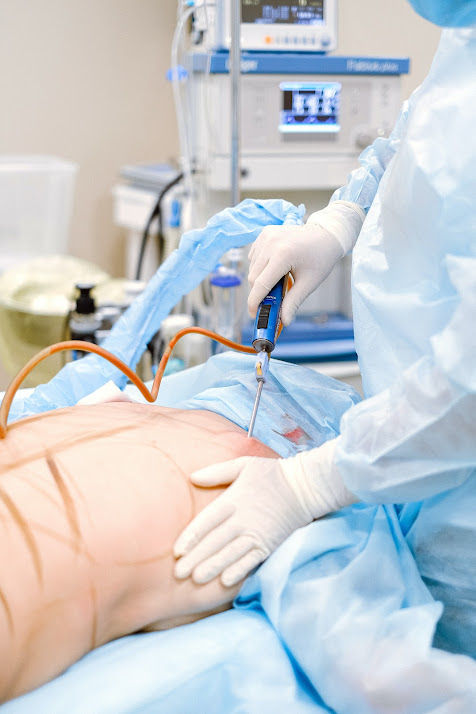Achieving Optimal Vaginal Health Post-Sex: What You Need to Know
Introduction
Maintaining optimal vaginal health is an important aspect of overall reproductive and sexual health. After engaging in sexual activity, it is essential to take steps to promote vaginal health and prevent infections. From urinating and cleansing to practicing safe sex and seeking medical attention if necessary, there are several key steps that individuals can take to achieve optimal vaginal health post-sex. In this outline, we will explore the essential information you need to know to promote and maintain vaginal health after sexual activity.
Urinate: Urinating after sex helps flush out bacteria and can reduce the risk of UTIs.
urinating after sex is an important step in maintaining vaginal health. Urination helps to flush out bacteria that may have entered the urethra during sexual activity. This can reduce the risk of urinary tract infections (UTIs), which are caused by bacteria in the urinary tract. By urinating soon after sex, you can help to flush out any bacteria and reduce your risk of developing a UTI. Additionally, it is important to practice good hygiene habits, such as wiping from front to back after using the bathroom, to reduce the spread of bacteria from the anus to the urethra and vaginal area.
Cleanse: Clean the genital area gently with water or a mild soap. Avoid harsh scrubs or irritants.
cleansing the genital area after sex is important for maintaining vaginal health. It is recommended to use water or a mild soap to gently clean the area. Harsh scrubs or irritants can disrupt the delicate balance of bacteria in the vagina and lead to irritation, itching, and increased risk of infection. When cleansing, be sure to clean the entire genital area, including the labia, clitoris, and perineum. Avoid using scented or fragranced products, as these can also cause irritation. Gently pat the area dry with a clean, soft towel after cleansing. By following these guidelines, you can help to promote a healthy vaginal environment and reduce the risk of infection.
Change out of damp clothing: Change out of wet clothing, such as a wet bathing suit or damp underwear, as soon as possible to reduce the risk of infection.
changing out of damp clothing is important for maintaining vaginal health. Damp clothing, such as a wet bathing suit or damp underwear, can create an environment that is conducive to the growth of bacteria and yeast. This can increase the risk of infections, such as bacterial vaginosis or yeast infections. It is best to change into dry clothing as soon as possible after engaging in activities that cause you to become damp, such as swimming or sexual activity. Additionally, wearing breathable, loose-fitting clothing can help to reduce the risk of vaginal infections by promoting air flow and reducing the growth of bacteria and yeast. By taking these steps, you can help to maintain optimal vaginal health and reduce your risk of infection.
Avoid douching: Douching can disrupt the natural balance of bacteria and pH in the vagina, leading to an increased risk of infection.
avoiding douching is important for maintaining vaginal health. Douching involves the use of a device or solution to flush out the vagina. While some people believe that douching can help to clean the vagina or prevent odors, it can actually have the opposite effect. Douching can disrupt the natural balance of bacteria and pH in the vagina, leading to an increased risk of infection and other vaginal health problems. The vagina is self-cleaning, and the natural discharge helps to remove bacteria and maintain a healthy pH. By avoiding douching and allowing the vagina to cleanse itself naturally, you can help to maintain optimal vaginal health and reduce your risk of infection.
Use lubrication: If necessary, use a water-based lubricant during sex to reduce friction and prevent irritation.
using lubrication during sex can help to maintain vaginal health. If necessary, using a water-based lubricant can reduce friction and prevent irritation during sexual activity. This can help to prevent micro-tears in the vaginal tissue, which can increase the risk of infection. It is important to avoid using oil-based lubricants, such as petroleum jelly or mineral oil, as these can damage latex condoms and increase the risk of condom breakage. Additionally, some oil-based lubricants can disrupt the natural balance of bacteria in the vagina, leading to an increased risk of infection. By using a water-based lubricant, you can help to reduce friction and prevent irritation during sex, promoting optimal vaginal health.
Seek medical attention if necessary: If you experience pain, itching, burning, or unusual discharge after sex, seek medical attention to determine if you have an infection and receive appropriate treatment.
seeking medical attention if necessary is important for maintaining vaginal health. If you experience symptoms such as pain, itching, burning, or unusual discharge after sex, it is important to seek medical attention to determine if you have an infection. Some common infections that can occur after sex include yeast infections, bacterial vaginosis, trichomoniasis, and sexually transmitted infections (STIs). Early detection and treatment of these infections can help to prevent the spread of the infection and prevent complications. Your healthcare provider can perform tests to determine the cause of your symptoms and provide appropriate treatment, which may include medications or other interventions. By seeking medical attention when necessary, you can help to maintain optimal vaginal health and reduce your risk of infection.
Practice safe sex: Using condoms and other barrier methods during sex can help reduce the risk of sexually transmitted infections.
practicing safe sex is important for maintaining vaginal health. Using condoms and other barrier methods during sexual activity can help to reduce the risk of sexually transmitted infections (STIs). STIs are caused by viruses, bacteria, or parasites that are transmitted from one person to another through sexual contact. Symptoms of STIs may include itching, burning, pain, or unusual discharge.
If left untreated, STIs can cause serious health problems, including infertility, pelvic inflammatory disease, and an increased risk of contracting other STIs, such as HIV. By using condoms and other barrier methods during sexual activity, you can help to reduce the risk of STIs and maintain optimal vaginal health. Additionally, it is important to be tested regularly for STIs and to communicate openly and honestly with your sexual partners about your sexual health history. By taking these steps, you can help to promote sexual health and reduce the risk of STIs.
Conclusion
In conclusion, maintaining optimal vaginal health after sexual activity is important for overall health and well-being. By following simple steps such as urinating, cleansing, changing out of damp clothing, avoiding douching, using lubrication, seeking medical attention if necessary, and practicing safe sex, you can help to promote vaginal health and reduce your risk of infection. Additionally, it is important to be aware of your body and to seek medical attention if you experience any symptoms that are out of the ordinary. By taking care of your vaginal health, you can help to maintain a healthy and fulfilling sex life.






Comments
Post a Comment